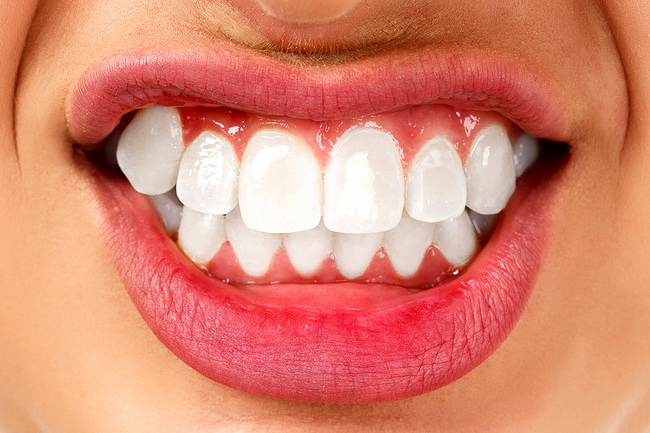- Make It Yourself Lavender Heart-Shaped Bath Bombs!
- 20 Things You Never Knew About “Down There”
- 12 Best Foods For Those Suffering From Arthritis Pain
- 12 Personal Hygiene Mistakes Almost Everyone Makes (Mom Never Told You About #4!)
- 15 Medicinal Plants And Herbs From The Cherokee People
- 12 Mind-Blowing Benefits Of Drinking Coconut Water During Pregnancy
- 12 Outstanding Winter Foods That Won’t Fatten You Up Like A Christmas Turkey
12 Ways To Stop Doing This Every Night (And We Don’t Mean Snoring!)

Photo credit: bigstock.com
Unless you sleep with someone, you might have bruxism and not even know it. What is bruxism? It’s the medical term for people who grind their teeth at night while they sleep, and for some people, even during the day.
This is perhaps one of the most damaging dental disorders and is quite common, even though many people are unaware of it. Grinding your teeth is like putting 1,200 pounds of pressure on your teeth, the muscles around the jaw, and other muscles and tissue involving the jaws, gums, and teeth.
Grinding your teeth often leads to jaw and dental disorders, including earaches, broken or cracked teeth, jaw joint disorders, and even TMJ (Temporomandibular joint dysfunction).
Sometimes the cause of teeth grinding is due to diseases such as Huntington’s or Parkinson’s disease. Other times, it is due to stress, misaligned teeth, suppressed feelings of frustration, resentment, and anger, or even a certain type of parasitic infestation! It is quite common among those who suffer from fibromyalgia.
Most people become aware of this problem because someone tells them about it or because they begin to experience dental pain, pain in the jaw, and/or headaches. Many people go to the dentist for a cracked or broken tooth and find out they are grinding their teeth at night.
There are plenty of natural ways that you can deal with bruxism. Take a look at the top 12 ways you can deal with teeth grinding.
Continue to Page 2
































